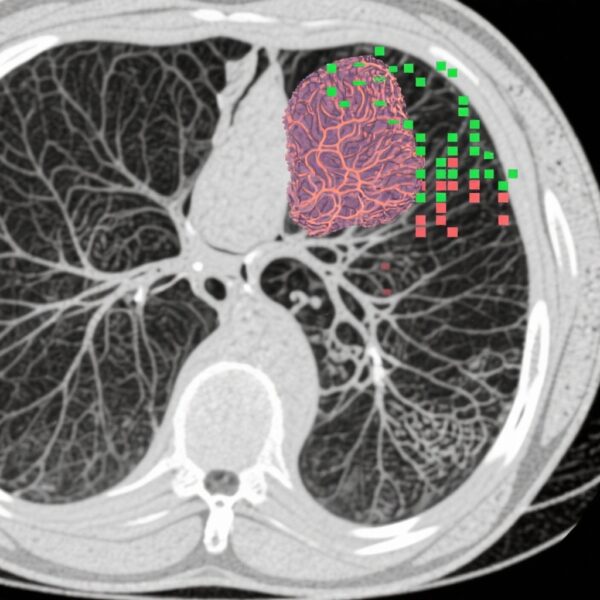Highlight
- Adherence to the American Heart Association (AHA) dietary pattern significantly lowers the risk of chronic kidney disease (CKD) progression in individuals with cardio-metabolic disorders.
- Other dietary patterns like the Diabetes Risk Reduction Diet (DRRD) and EAT-Lancet diet exhibit weaker protective effects against CKD progression.
- High adherence to unhealthful plant-based dietary indexes correlates with increased CKD risk.
- No dietary pattern significantly affects mortality after CKD onset, emphasizing the need for targeted management post-CKD diagnosis.
Study Background
Chronic kidney disease (CKD) represents an increasing global health burden, often evolving from complex cardio-metabolic disorders such as type 2 diabetes mellitus (T2DM), hypertension, and cardiovascular disease (CVD). These disorders significantly accelerate renal function decline, leading to heightened morbidity and mortality. Dietary factors, recognized as modifiable lifestyle elements, have been widely studied for their role in preventing cardio-metabolic diseases, but their impact on CKD progression across these interconnected conditions remains inadequately defined. Understanding how adherence to various dietary patterns influences CKD development and progression could illuminate potential preventive strategies to mitigate kidney disease burden in high-risk populations.
Study Design
This nationwide cohort study utilized data from 205,826 UK Biobank participants who completed 24-hour dietary recalls, allowing derivation of nine dietary pattern indices, including the American Heart Association (AHA) diet, Diabetes Risk Reduction Diet (DRRD), EAT-Lancet diet, and plant-based diet indexes (PDIs). The study employed sophisticated multi-state models to track transitions from a healthy state through cardio-metabolic disorders to CKD and eventually death. Cox proportional hazards regression was used to evaluate associations between dietary adherence and risks of incident cardio-metabolic disorders, CKD progression, and subsequent mortality.
Key Findings
The analysis confirmed that greater adherence to the AHA dietary pattern was associated with a markedly reduced risk of developing CKD (hazard ratio [HR] for highest vs. lowest quintile: 0.63; 95% confidence interval [CI]: 0.55-0.71). In contrast, dietary patterns such as the DRRD and EAT-Lancet diets presented weaker but still beneficial associations for CKD risk reduction.
Conversely, a high adherence to an unhealthful plant-based diet index was linked to an increased CKD risk (HR = 1.44, 95% CI: 1.26-1.64). This highlights the critical importance of diet quality in plant-based diets, where emphasis on refined carbohydrates and low-nutrient plant foods may exacerbate metabolic risk.
Using multi-state modeling to assess CKD progression from established cardio-metabolic disorders, each 1-unit increase in the AHA diet z-score corresponded to an 11% risk reduction in CKD progression (HR = 0.89, 95% CI: 0.81-0.97). This protective association was particularly pronounced among participants with type 2 diabetes (HR = 0.83, 95% CI: 0.71-0.97), underscoring the diet’s potential to modify disease trajectories in high-risk subgroups.
Interestingly, none of the dietary indices demonstrated a significant association with mortality risk following CKD onset, indicating that dietary adherence may exert most benefit during earlier stages of disease progression rather than influencing survival after CKD establishment.
Expert Commentary
These findings emphasize the translational relevance of established dietary guidelines, such as those recommended by the American Heart Association, in reducing CKD risk within the context of prevalent cardio-metabolic disorders. The comprehensive approach allowing for multi-state transition analysis captures the complex interplay between multiple chronic diseases over time, offering insights into primary prevention opportunities. While some prior studies have suggested benefits of plant-based diets on renal outcomes, this study’s distinction between healthful and unhealthful plant-based patterns clarifies the nuance that not all plant-based diets confer equal protection.
The lack of dietary impact on mortality post-CKD onset may reflect the dominant influence of non-dietary factors such as comorbidities, advanced kidney function impairment, or treatment effects. Nonetheless, the emphasis on early dietary intervention remains a vital public health message.
Study limitations include reliance on self-reported dietary recalls, which may be subject to recall bias and misclassification, and the observational nature precludes definitive causal inference. However, the large cohort and consistent findings across multiple analyses strengthen the validity of the conclusions.
Conclusion
This robust nationwide cohort study confirms that adherence to the American Heart Association diet offers superior protection against CKD development and progression in patients with cardio-metabolic disorders, particularly type 2 diabetes. It underscores the clinical priority of incorporating dietary counseling aligned with AHA guidelines in early intervention and preventive strategies. Conversely, the increased CKD risk associated with an unhealthful plant-based diet reminds clinicians to evaluate diet quality beyond plant-based labels.
No dietary pattern was associated with survival after CKD onset, highlighting the critical need for tailored management strategies beyond nutrition modification in advanced CKD stages. Future research should focus on interventional trials to validate these observational findings and explore mechanisms by which diet modulates kidney disease trajectories.
References
Liu D, Liu Z, Ma JY, Wu JN, Liu T, Chen LH. Associations of Dietary Index Adherence with The Progression of Chronic Kidney Disease Across Cardio-metabolic disorders: Findings from Multi-state Models of a Nationwide Cohort Study. J Ren Nutr. 2025 Oct 14:S1051-2276(25)00220-1. doi: 10.1053/j.jrn.2025.10.002. Epub ahead of print. PMID: 41101407.
KDIGO 2021 Clinical Practice Guideline for the Management of Blood Pressure in Chronic Kidney Disease. Kidney Int. 2021 Mar;99(3S):S1-S87.
Appel LJ, Moore TJ, Obarzanek E, et al. A clinical trial of the effects of dietary patterns on blood pressure. DASH Collaborative Research Group. N Engl J Med. 1997 Apr 17;336(16):1117-24.
Campbell KL, Ash S, Bauer JD, Palmer SC. Plants, protein, and chronic kidney disease: a review of dietary patterns and impact on renal outcomes. Curr Opin Nephrol Hypertens. 2019 Nov;28(6):529-536.


